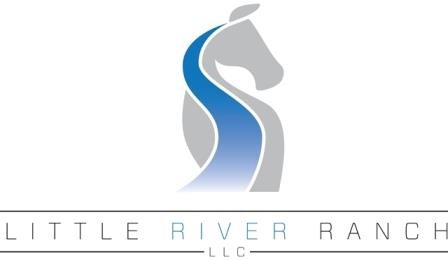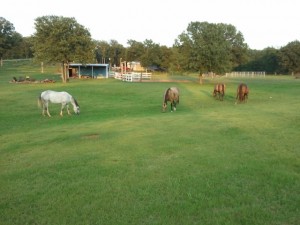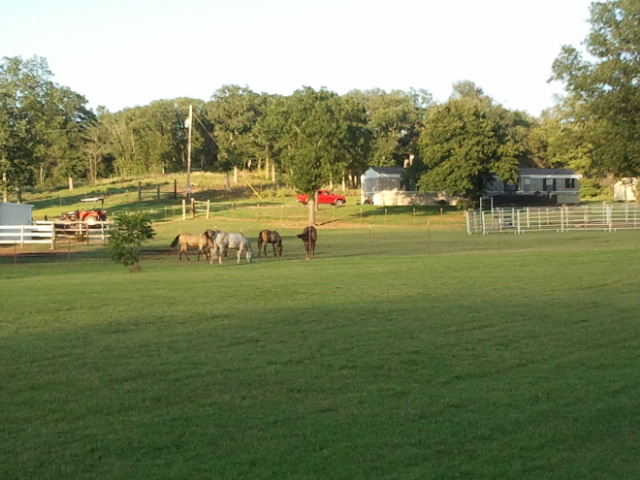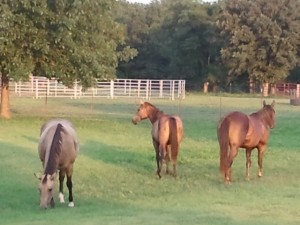Equine assisted psychotherapy (EAP) is an emerging treatment modality that utilizes horse-handling activities to generate powerful therapeutic metaphors that reflect how people relate to themselves and others. With the support of peers and Little River Ranch, LLC’s equine specialists and mental health professionals, participants examine these metaphors to gain insight into their emotions, behaviors, habits, and unconscious reactive ways of relating. As issues arise within the equine setting, individuals experience opportunities to work toward the understanding and management of those issues.
Equine Assisted Learning
Equine assisted learning (EAL) is an effective method for improving teamwork, communication, problem solving and other intra and inter-personal skills. It provides a natural setting in which to face our emotional challenges as we increase confidence and self-esteem.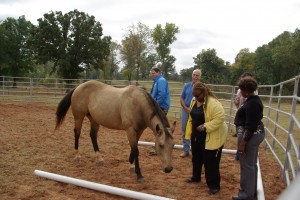 Equine assisted learning also provides a safe context for addressing emotional blocks and developing new, pro-social ways of relating. Participants often find this part of our program both highly challenging and fun, while therapeutically powerful and often life-changing. The bond formed between our horses and our participants is frequently transformative.
Equine assisted learning also provides a safe context for addressing emotional blocks and developing new, pro-social ways of relating. Participants often find this part of our program both highly challenging and fun, while therapeutically powerful and often life-changing. The bond formed between our horses and our participants is frequently transformative.
Our equine therapy program is facilitated by a licensed mental health professional and an experienced EAGALA-certified equine specialist. EAGALA is the premier professional association providing education, standards, and support for professionals providing EAP and EAL services.
Licensed Mental Health Professional
The mental health professional member of our EAP/EAL teams are all licensed by the State of Oklahoma in a specific mental health discipline. The concept that horses might be helpful or healing to people struggling with mental health issues is based on the idea that horses (as domesticated prey animals) are extremely sensitive to changes in the human being (as a predatory creature). Due to their sensitivity, horses react and respond to people differently based upon the person’s emotional state. Since we know that emotional states in human beings also impact our physiology, it only makes sense that horses can smell or sense those changes. The horse acts as a large biofeedback machine, providing the client(s) and the therapist with information regarding the client’s moods and changes within those moods. If a client arrives anxious the horse will act and respond one way. If the client is able to reduce his or her anxiety, the horse’s behavior will also change. This provides a great deal information and skill building opportunities for both the client and the therapist.
